Voicing Argentina’s discontent over its direction, Foreign Minister Diana Mondino told her Mercosur counterparts on Sunday that the regional trade bloc needs an “adrenaline shock.”
"We have a critical view of Mercosur's present situation and we consider that its potential as an expanded market and a platform for relations with the world is highly untapped,” Mondino said at a summit of foreign ministers in Asunción.
“Mercosur is in need of an adrenalin shock," she added, declaring that the “intra-zone trade suffers from an undeniable stagnation.”
The remarks were delivered on the eve of the bloc’s presidential summit, which will see the formal inclusion of Bolivia as a member state.
However, Argentina’s President Javier Milei has decided not to attend the event, with Mondino set to stay on and replace him at Monday’s meeting.
Argentina’s foreign minister told her peers in the South American bloc – made up of Argentina, Brazil, Paraguay, Uruguay, and now Bolivia – that Mercosur has not managed in its 33 years "to facilitate access to large markets outside the region."
Echoing long-standing criticism from Uruguayan President Luis Lacalle Pou, Mondino called for an update of the bloc’s rules that contemplates "new of negotiating” that are “more flexible.”
President Milei’s government in Argentina “seeks to normalise foreign trade and favour the free import of goods and services," she added.
Paraguay’s Foreign Minister Rubén Ramírez, speaking for the host nation at the 64th summit of Mercosur heads of state and associated countries, agreed that "the process of understanding has been slow and complex.”
But while he questioned the bloc's lack of agility, Ramírez nevertheless highlighted a recent agreement with Singapore, which broke a more than decade-long drought of pacts when it was signed last December.
The Paraguayan official also highlighted the launch of negotiations with the United Arab Emirates earlier this week.
Reiterating his nation’s position, Uruguay’s Foreign Minister Omar Paganini once again called for “flexibility" in free-trade talks. He said Montevideo would push for an agreement with China when it assumes the bloc's pro-tempore presidency at the end of this meeting.
That agreement, however, does not look to be on firm ground. Paraguay does not have full diplomatic relations with Beijing because it recognises Taiwan as a sovereign nation. Mercosur’s two largest partners, Argentina and Brazil, are also not convinced of its viability.
Heads of state
Paraguayan President Santiago Peña will host Monday’s presidential summit, which will see Brazil’s Luiz Inácio Lula de Silva, Uruguay’s Luis Lacalle Pou and Bolivia’s Luis Arce in attendance. Panama’s new president, José Raúl Mulino, will attend as a guest.
Arce must formalise his country's entry into the bloc after enacting the accession law last Friday, just days after Bolivian authorities managed to put down an attempted coup d'état in La Paz.
Milei, who has had recent clashes with Arce and Lula, has snubbed his southern cone peers and will not attend. He instead travelled to a conservative meeting in southern Brazil, where he embraced his ideological ally Jair Bolsonaro, former president and Lula's rival.
Officials in Asunción shrugged off the decision. "We are not looking for an ideological bloc but for integration as an objective," Paraguay's Ramírez said last Friday.
Political scientist Alejandro Frenkel, an expert in international relations at Argentina's National University of San Martín, said these "conflictive situations or political transitions" will probably mean that "perhaps there will not be much initiative or very clear guidelines on how to move forward" at Monday’s summit.
Added to this is the fact that Uruguay is assuming the pro-tempore presidency in the middle of a crunch election period, with a general election in October.
EU deal off table?
One of the most pressing issues at the Mercosur summit is the long-delayed free-trade deal with the European Union (EU). Negotiated arduously over two decades, the terms of an agreement were finalised in 2019, though the deal has since run into problems.
The deal, which would create a potential market of some 700 million consumers, would see the region's agricultural powers export meat, sugar, rice, honey and soybeans to Europe, while the EU would export cars, machinery and pharmaceuticals, among other items.
However, there is now significant European pushback to the deal, not least from France, which fears a massive influx of South American agricultural produce.
"We cannot continue to be stuck in processes in which we have not made progress," Ramírez said at the foreign ministers' meeting on Sunday.
"We are not going to give in or accept the imposition of protectionist policies by developed countries that, with well-intentioned speeches, seek to establish measures that become obstacles to trade," he declared.
Far from being discouraged, Brazil has reiterated its commitment to the search for common ground.
“In the case of relations with the European Union ... our objective of reaching an ambitious and balanced agreement remains in force," said Mauro Vieira, Brazil’s foreign minister.
“Mercosur has the appropriate capacities and resources to supply the current and future needs of the most demanding markets: strategic natural resources, excellent human talent, a high quality food supply, valuable energy resources, an industry with innovative capacity," said Mondino on Sunday.
"We must succeed in developing this potential,” she added.
The Mercosur, or Southern Common Market, was founded in 1991 by Argentina, Brazil, Paraguay and Uruguay. Venezuela, whose membership was approved in 2006, has been suspended since 2017 for "rupture of democratic order."
This week’s summit will see the formal ascension of Bolivia to the bloc.
– TIMES/AFP/PERFIL














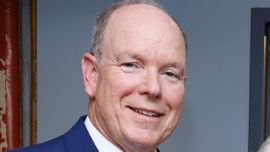






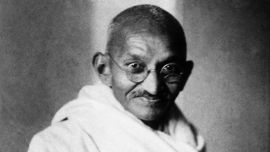

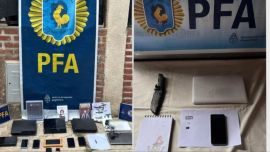
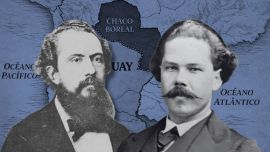
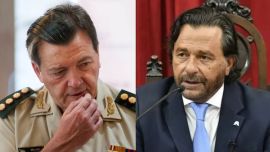
Comments